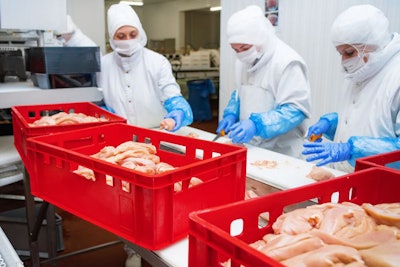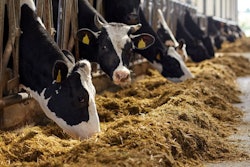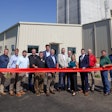
A US House select subcommittee said the meat and poultry industries worked closely with the Trump administration to advance their interests; industry says report ‘distorts the truth’
The U.S. House Select Subcommittee on the Coronavirus Crisis on May 12 released a report that it says details how meatpacking companies worked with members of the Trump administration to weaken worker protections and insulate facilities from regulation and liability during the COVID-19 pandemic.
The subcommittee said meat and poultry industry lobbyists and executives enlisted help from the U.S. Department of Agriculture (USDA) to “force workers to remain in dangerous plants with high risk of coronavirus transmission” and made misleading claims that the nation’s food supply was in danger of failure if workers did not remain on the job.
“Meatpacking companies knew the risk posed by the coronavirus to their workers and knew it wasn’t a risk that the country needed them to take,” the report said. “They nonetheless lobbied aggressively — successfully enlisting USDA as a close collaborator in their efforts — to keep workers on the job in unsafe conditions, to ensure state and local health authorities were powerless to mandate otherwise, and to be protected against legal liability for the harms that would result.”
The report said more than 59,000 employees of Smithfield, Tyson, JBS, Cargill and National Beef were infected with the coronavirus and at least 269 workers died in the first year of the pandemic.
The subcommittee said representatives from meatpacking companies, particularly Smithfield and Tyson, worked in close collaboration with administration officials at USDA and the White House and that the companies “proposed an executive order signed by the president that would insulate meatpacking companies from oversight by state and local health departments and provide legal protection against lawsuits for worker illnesses and deaths.” It said Tyson’s legal department drafted the proposed executive order.
Industry responds
In an email to Feed Strategy, a Tyson spokesperson said the company regularly works in close collaboration with the White House.
“Throughout the pandemic, our top priority has been and continues to be the health and safety of our team members. Over the past two years, our company has been contacted by, received direction from, and collaborated with many different federal, state and local officials – including both the Trump and Biden administrations – as we’ve navigated the challenges of the pandemic,” Tyson’s statement said. “This collaboration is crucial to ensuring the essential work of the U.S. food supply chain and our continued efforts to keep team members safe. … Our efforts have also included working cooperatively and frequently with local health department officials in our plant communities.”
In a separate email to Feed Strategy, Smithfield’s vice president of corporate affairs, Jim Monroe, cited the challenges the company has faced during the pandemic.
“More than two years ago we encountered a first-of-its-kind challenge. As an essential industry with responsibilities for the nation’s food supply, the challenges were particularly profound,” Monroe said. “The meat production system is a modern wonder, but it is not one that can be redirected at the flip of a switch. That is the challenge we faced as restaurants closed, consumption patterns changed and hogs backed up on farms with nowhere to go. The concerns we expressed were very real and we are thankful that a food crisis was averted and that we are starting to return to normal. … Did we make every effort to share with government officials our perspective on the pandemic and how it was impacting the food production system? Absolutely.”
The North American Meat Institute (NAMI) said the subcommittee’s report “distorts the truth about the meat and poultry industry’s work to protect employees during the COVID-19 pandemic.”
“The Meat Institute and its member companies voluntarily provided hundreds of thousands of pages to the committee. The report ignores the rigorous and comprehensive measures companies enacted to protect employees and support their critical infrastructure workers,” said NAMI president and CEO, Julie Anna Potts, in a statement on NAMI’s website. “The meat and poultry industry, like many industries, was challenged by the pandemic in the spring of 2020. As more became known about the spread of the virus, the meat industry spent billions of dollars to reverse the pandemic’s trajectory, protecting meat and poultry workers while keeping food on Americans’ tables and our farm economy working.
“The House select committee has done the nation a disservice. The committee could have tried to learn what the industry did to stop the spread of COVID among meat and poultry workers, reducing positive cases associated with the industry while cases were surging across the country. Instead, the committee uses 20/20 hindsight and cherry picks data to support a narrative that is completely unrepresentative of the early days of an unprecedented national emergency.”
National Chicken Council (NCC) President Mike Brown, in a statement on NCC’s website, said the industry has always been committed to worker safety and praised workers.
“The chicken industry, as with other critical industries, was on the front lines and absorbed blows as the first wave of COVID-19 swept across the country. To be clear, the effects of COVID-19 have been grievous, and no industry sector was spared. But although the challenge was immense, the people who make up the chicken industry showed enormous resiliency and innovative spirit in responding. Workplaces were adapted, and then adapted again as we learned more about the virus. The data show these efforts worked,” Brown said. “NCC member companies faced a daunting task, and they did everything they could to keep their workers safe while keeping food on Americans’ tables. NCC used its unique position as a national trade association to help member companies succeed in this mission.
“We regret that this report failed to shine light on the momentous efforts between industry, government and state and local health officials to keep employees safe and to keep Americans fed during one of the most challenging and uncertain times in our nation’s history.
“The chicken industry is deeply grateful for the frontline workers who did their part to support the nation. NCC stands by its actions and those of its members during the pandemic.”
The select subcommittee said its report is based on more than 151,000 pages of documents collected from meatpacking companies and interest groups. During the investigation, select subcommittee staff conducted more than a dozen survey calls with meatpacking workers, union representatives, former USDA and Occupational Safety and Health Administration (OSHA) officials, and state and local health authorities; and held staff briefings with OSHA and with USDA. The select subcommittee also obtained information relevant to the investigation during transcribed interviews with a current Centers for Disease Control and Prevention (CDC) official and the former Trump administration CDC Director.











